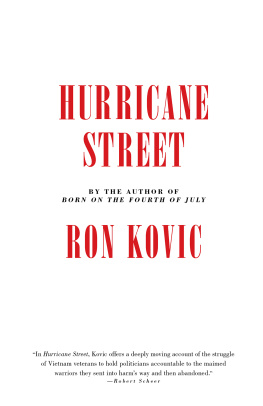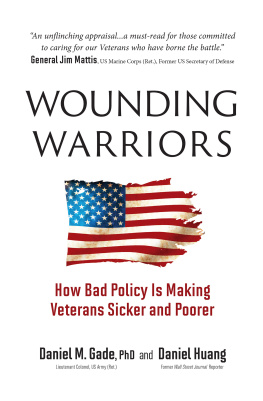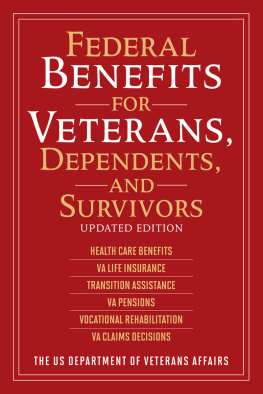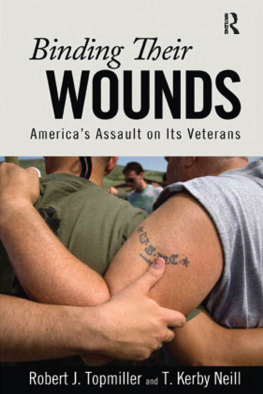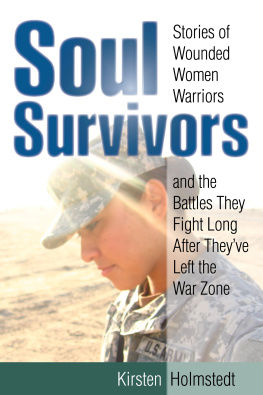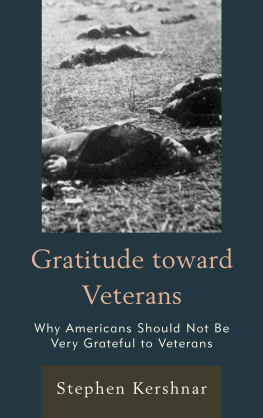
for TerriAnn Ferren
To care for him who shall have borne the battle and for his widow and his orphan...
President Abraham Lincoln,
Second Inaugural Address, March 4, 1865
This is the story of a few brave men who, though severely wounded in war, returned home to fight a different battle.
Introduction
Over forty years have now passed since that day in 1974 when we first entered the office of Senator Alan M. Cranston of California and began a sit-in which would quickly escalate into a hunger strike and touch the nation. Hurricane Street is a work of both memory and fiction. It is my own recollection of the strike and all that followed that spring and summer. Some names and details have been changed out of respect for peoples privacy, and to fill gaps in my memory. (One such memory gap is a meeting that took place early in the strike with Senator Cranston on February 13, 1974. Unfortunately, nothing substantive came of that meeting, which is probably why it didnt lodge itself in my memory, and why I have not included it in this book.) For the sake of presenting a coherent story line, I have also taken the liberty of creating two characters: Tony D., who is essentially a composite of several sight-impaired Vietnam veterans I knew while I was a patient at the Bronx and Long Beach VA hospitals; and Joe Hayward, who represents a number of seriously wounded veterans I also knew during that period. In addition, I have combined the two AVM takeovers of the Washington Monument in the spring and summer of 1974 into one single action.
Each night during the strike after the lights were turned out, I would make entries in my diary using a small penlight. Some of the entries were very brief while others were quite long. Back then I sensed the need, even in the most minimal way, to record the history of the strike. I figured somebody had to try to tell this story while they still could. Most of us, including myself, didnt expect to live very long back then, with all the nightmares and anxiety attacks screaming in our heads. No doubt everyone involved will have their own way of remembering those days and giving their opinions on what may or may not have happened, but this is how I remember it.
Revolution was in the air. The cities were burning as National Guardsmen patrolled the streets with fixed bayonets, taking sniper fire from rooftops. It was an extraordinary time, an agonizing time, a time of great conflict, a time of great sorrow, and a time that would forever change the way we saw our country and the world. America seemed to be tearing itself apart; never before had the nation been so polarized; not since the Civil War had we as a people been so divided. Everything was being questioned, nothing was sacred, even the existence of God was now suspect. The very earth beneath my feet seemed to be shifting, and there no longer seemed to be any guarantees, or anything that could be trusted or believed in anymore.
As the last American troops were being withdrawn from Vietnam in the spring of 1974, a small group of disabled veterans staged a two-week hunger strike at the West Los Angeles office of thenUS Senator Alan Cranston.
Elaine Woo, Los Angeles Times, August 13, 1999
This is the story of that strike.
Part I
The Hospital
The first thing that hits you in this place is the smell. It is a terrible odor of urine and feces, of human bodies all crammed into these depressing little cubicles. There are no private rooms, just these filthy green curtains separating the paralyzed men in their hospital beds. It is like a huge warehouse of human refuse, a storage center for the living dead. There is talk of building a new facility but the funds are just not there. They must all go to the war effort, a war we cannot win, a war where young men continue to die and are maimed for nothing, for a lost cause.
As paralyzed veterans, we all walk a very thin line between being on the outside and stuck in this place. It is not an easy wound to live with. There are the bedsores and the catheters, the urinary tract infections and high fevers, the lack of sexual function, spasms, and terrible insomnia that torments you in the night. Each morning you wake up wondering how youre going to make it through another day. There is an entire body that does not move or feel from your midchest down and you are constantly lifting yourself up from your cushion in your wheelchair to keep your skin from breaking down. Youre scared and try your best to hide all that youve lost, all that youre going through.
Do the American people, the president, the politicians, senators, and congressmen who sent us to this war have any idea what it really means to lose an arm or a leg, to be paralyzed, or to begin to cope with the psychological wounds of that war? Do they have any concept of the long-term effects of these injuries, how the struggles of the wounded are only now just beginning? How many will die young and never live out their lives because of all the stress and the myriad of problems that come with sending young men into combat?
You struggle to look normalto fit into this world again after all that has happened to you. It all seems so overwhelming at first, but somehow you find a way to continue on. There are the anxiety attacks and the horrifying nightmares, the depression and thoughts of giving up. You do your best. Youve got to keep living. Youve got to keep getting up every morning no matter how crazy it all seems. Youre amazed that youre still alive, that after all the frustrations and confinement, in and out of bed, fevers, IVs, wetting your pants, soiling the sheets, you are still here, still in this world.
You try to sit proudly in your wheelchair every day, try not to lose your balance. It is incredible how normal a person can look if he only tries. You do your best to get back into life again but you know deep down inside that nothing will ever be the same, that you have lost more than most people could ever imagine, sacrificed more for your country, short of dying, than most of your fellow citizens could ever comprehend.
The SCI Ward
Dr. M., the chief surgeon at the hospitals Spinal Cord Injury (SCI) Center, walks past me. He is very tired but still he recognizes me and says hello. He has been in the operating room all day. His first patient, a paraplegic from D ward, had to have a flap put on his rear end for a bedsore that wouldnt heal. There are a lot of them in here with that problem and sometimes the flap doesnt take and they have to do it all over again. It can be very frustrating. Dr. M.s second patient was not as lucky and had to have his gangrenous left foot removed. The nurses did all they could to save the foot but in the end they just werent able to. There are a lot of paralyzed guys around here with amputated legs. You can get a really bad burn and not even know it. I remember hearing a story once about a guy who came home drunk one night with his girlfriend and she filled the bathtub and placed him in it, not realizing the water was scalding hot. He got burned really badly and died the following week. There are a lot of stories like that and you try to never forget them. These are important lessons, and as horrible as it may seem, remembering them is crucial to our survival.
For nearly three months last year I was a patient here at the Long Beach VA hospital, healing a terrible bedsore on my rear end after a fall in the bathtub at my apartment. The accident happened not long after I had broken up with a woman named Carol who I first met at an antiwar demonstration in Los Angeles in the spring of 1972. Carol was the first woman I loved and the very first woman to break my heart. After we broke up I felt as if my whole world had fallen apart.
Next page
